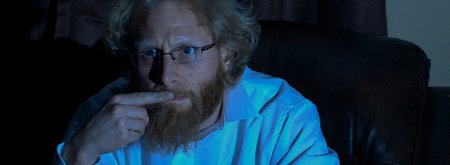The Mistake Many Scientists Make
I don’t know about you but I tend to go to a lot of BBQs in the summer. I find it’s a good way to spend time and to meet new friends. I really love talking with people about their big questions. I love to hear about their own questions, not the questions that they’ve been told to ask.
And then I love to hear about the answers that they’re trying to interface with them. I’ve found that each new person often has similar questions, always from a uniquely different point of view. But I’ve still found myself having similar conversations, like this one that I had last summer, fairly often.
‘I don’t believe in God’, said my new friend as the flames from the BBQ licked my shorts. I hadn’t asked. But he had put laser sights on me since he had found out I was a Christian and into philosophy.
‘Why not?’, I asked, trying to prepare myself for whatever came next.
‘Evolution’, he said and then just looked at me as if this was a reasonable response to the question.
‘Evolution’, I repeated, semi-shocked that someone who seemed so normal and nice could say something so off the wall. For him that was enough, evolution as he understood it explained everything, so you don’t need God. He's not alone either. There are millions of people who think that 'Evolution' answers my question. It doesn't, but lots of people think it does. There is a name for my friends way of thinking about evolution, it’s called naturalism. Naturalism says that the only truth we can know about the universe is that which can be established by scientific investigation. This is all there is, was, or ever will be. So for example, Brains exist, but minds and moral values do not. Minds and moral values are invisible to the five senses and are therefore invisible to scientific enquiry. Therefore they do not exist? Is this a bit hasty? You haven’t heard the worst.
Now, Darwinists do recognise that neo-Darwinian theory represents a huge extrapolation from the data, which seems to support micro-evolutionary change but does not provide evidence of macro-evolutionary development.
It can come as a shock to someone who is, let me say this gently, a little naively confident, in the scientific education they have absorbed to learn that some Darwinists also freely admit that none of the evidence, taken in isolation, whether it be from microbiology, paleogeography, paleontology and so forth provides proof of the neo-Darwinian theory. But their point is that the theory is nonetheless the best explanation, in virtue of its explanatory power, scope and so on.
Phillip Johnson has challenged the accepted status-quo in the following way. He says that the neo-Darwinian theory presupposes naturalism. This means that we can’t just take the neo-Darwinist at his word when he says that, ‘It’s the best explanation.’ We need to be aware that when he says it there is actually a hidden assumption or qualification, that he doesn’t make explicit or openly.
Johnson argues that in the light of this, the theory is better understood, as the following claim. ‘The explanatory superiority of the neo-Darwinian theory is a function of the pool of so called ‘live options’ available.’
You might say, ‘So what?’ well this might well shock you. This pool of ‘live options’ says Johnson is restricted by an unjustified methodological constraint. ‘What does that mean in normal language?’ you might ask. Exactly this; ‘an unjustified methodological constraint’ is a crooked referee, a bought judge, a mistake of reasoning, a biased independent observer or a corrupt politician. It’s a cross in the margin of clear and fair thinking. Nil point.
Johnson says that the options which are considered live are restricted by a presupposed commitment to naturalism. And he even agrees that the neo-Darwinian synthesis is the best naturalistic explanation available. But he insists that the interesting and important question is not whether the neo-Darwinian theory is the best naturalistic explanation, but whether it is the best explanation, that is to say, whether or not it is correct.
If we’re only interested in telling lies to grandma to keep her happy, then fine go with the unjustified commitment to naturalism. But if were taking science to be a serious search for answers then Johnson’s observations should, cause us to really question what we have been taught. How could the education system allow itself to make such a serious mistake at such a critical point. This is one of the profound questions that we are able to try and wrestle with. How is it possible that we are happy to tolerate such a blatant hijack of the scientific endeavour by atheists and cynics?
Johnson argues that if the pool of live options are unclouded by unjustified commitments to naturalism, and other hypothesis are available, then the explanatory superiority of neo-Darwinian naturalistic theory is no longer apparent.
Further Resources
For more on this topic, see the chapter on Science in Philosophical Foundations for A Christian Worldview by J.P. Moreland and W.L. Craig.
© 2005 Tom Price



